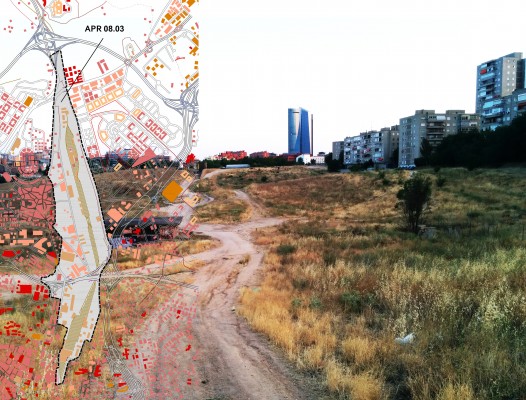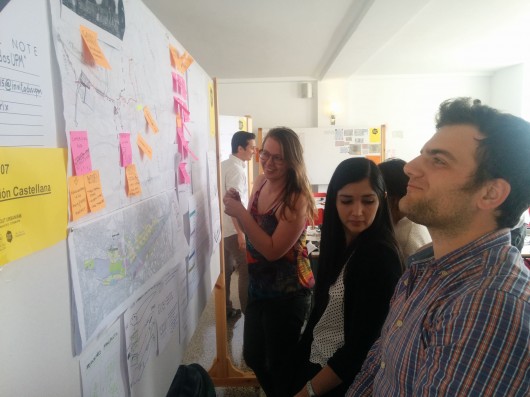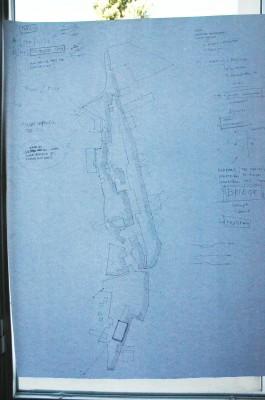May 3, 2015
In the north of Madrid is an almost empty plot of 311 hectare waiting to be developed. Where buildings used to stand, flowers and trees took over. In twenty-five years from now, the area will gradually change into modern and new living and working district. The waste land will transform. New apartment blocks will be build, offices, buildings for education and culture, and sport facilities. Meanwhile Operación Castellana proposes inbetween-projects; ephemeral projects that change in time and
maybe questions about the developments taking places. The main goal of the proposed projects is that they serve the needs of the residents living already near the area.

Mar 11, 2015
Meanwhile Operación Castellana
Meanwhile urbanism: A round trip from urban tactics to planning strategies
Urban planning can change. Its monolithic structures have proven ineffective responding to the current urban complexity and dynamism. The post-crisis scenario and the new urban practices spreading through Spain urge us to transform the way we think and plan our cities.
Within this general context, Madrid stands out as a city at the forefront of new ways of city-making, based bottom-up strategies and citizen participation. By contrast, so does being the epicenter of neoliberal urban policies and plans. Therefore, the challenge is to think if we can break this dichotomy: is it possible that the tactical urbanism and citizens' initiatives conform a global strategy for the city?
It is in the interim of this divergence where 'meanwhile urbanism' stands. Indeed, a powerful tool, which can serve to link the better of these two worlds, and give real answer current urban needs.
From this perspective, Operation Chamartín provides the ideal place to implement and evaluate the extent of this positioning frame for various reasons:
Controversy. The fact that this operation is mainly driven by a private entity, add to the complexity of the stakeholders involved and certain obsolescence of the planning model, shed some distrust in the project.
Opportunity. The lack of public investment for the surrounding neighborhoods Chamartin, even the political perspective to get it in a medium-long term, reduces any possibility of promoting the essential regeneration they need. So possibly, this project is the last great opportunity of these neighborhoods and the whole area of northern Madrid, to realize this necessary transformation and reduce the impact of the gap generated by the railway infrastructure.
Challenge. It is probably the largest-scale urban plan, by size, by the time scale of development and management complexity, which will face the city of Madrid in a while. For this reason, it means a challenge to build a new model of adaptive planning against orthodox practices. The question is, are we able to hack the current rigid and opaque dynamics to transform them into a collective project, open, transparent and ecological?
The workshop proposal involves planning strategies, practices and temporary initiatives in the field of Chamartín plan, based on the needs of citizens bordering Madrid and whole neighborhoods, and negotiation with government and private developers.
For it will be a simulation of different temporal stages of the plan relaying on the perspective of different stakeholders. For each temporal stages, we will define and schedule actions, strategies and projects, which may modify and improve the initial plan of Operation Chamartín. The workshop aims to produce a fictional model of adaptive planning for Operation Chamartín showing the benefits generated by the new understanding of urbanism.








